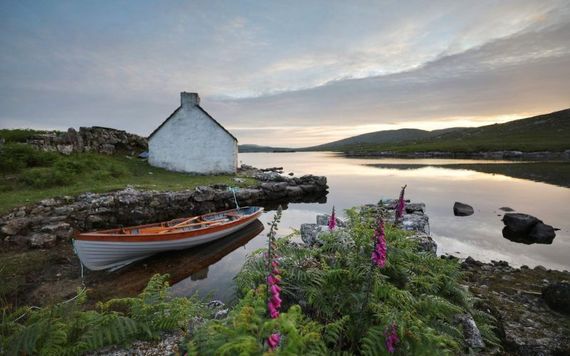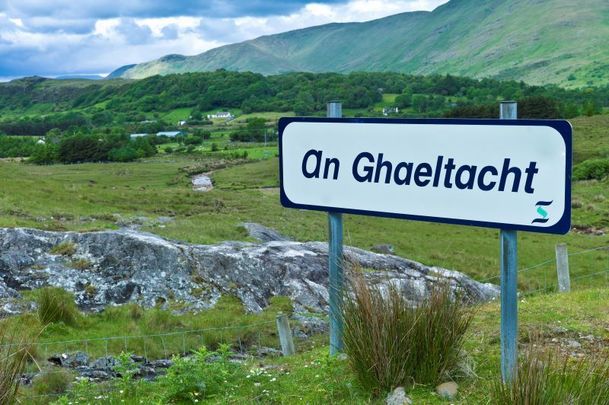It has led to fears that locals will be forced to look outside their own communities for accommodation, weakening the Irish language as a result. The crisis was exposed on Wednesday night on TG4 by the investigative current affairs series Iniúchadh (Inspection), which examines the housing crisis in the Gaeltacht.
The program "Níl Aon Tinteán", presented by journalist Kevin Magee, looked at a sample of Airbnbs and rental properties taken in a random week last month. It found there were 1,017 houses listed on Airbnb for short-term rent in Ireland’s Gaeltacht.
That same week, there were only ten houses available for long-term rent listed on the rental website Daft.ie.
Kerry’s Gaeltacht regions had the highest number of short-term lets available at 543, with not a single house listed on Daft.ie for long-term rent. In Donegal’s Gaeltacht, there were 225 houses listed on Airbnb while only three houses appeared on Daft.ie available for long-term rent. The Connemara Gaeltacht had 221 Airbnbs available and four homes for long-term rent.
Múscraí in Cork had ten Airbnb listings, but no long-term rentals listed on Daft.ie.
An Rinn, in Co. Waterford, had 15 Airbnb listings with two houses available for long-term rent on Daft.ie.
Donncha Ó hÉallaithe, a Connemara-based activist said people who want to raise families in the Gaeltacht are being forced to move away because outsiders are buying second homes and listing them on Airbnb.
He said: "There are problems when houses come on the market here because it’s an open market. Because there is a housing problem all over the country, people are coming from other places and buying these houses as a second home or as a holiday home or a home to retire in and so on.
"So that’s pushing locals out of the market. Most of the houses available are on Airbnb. They are not available for people who want to rent long-term.
"People aren’t staying here anymore, they are leaving and when they go, there aren’t strong Irish-language communities in the places they go to and that is a loss for the Irish language and Gaeltacht communities."

A fisherman's hut in Screebe, Connemara, County Galway.
Planning restrictions are also adding to the exodus. Máire Eibhlín Ní Chlochartaigh, a native of Mainís in the Conamara Láir Gaeltacht in Galway, spoke of how she had wanted to settle there. The area is being promoted by the Government development agency, Údarás na Gaeltachta, as one of the best places in the world to live and work.
However, Ms Ní Chlochartaigh was refused permission to build a home on family land and has had to move from the Gaeltacht.
"Our planning application was rejected because we were told the site was not suitable, we were also told that a house on the site would interfere with the local landscape. It really broke my heart," she said.
"I shed tears, my heart was broken. It is sad. I hoped I would have children here one day and we would give them the same opportunities as I had.
"We made the decision last year to give up on it. We saw a site in another county, and we are going to buy that instead."
Research by Dr Séin Ó Muineacháin for Údarás na Gaeltachta shows that almost a fifth of homes in the Gaeltacht are holiday homes, available for rent on the likes of Airbnb, with the proportion increasing in some Gaeltacht areas.
The figure is higher than 20% in many Gaeltacht areas.
And 45% of homes in the south Kerry Gaeltacht are classed as holiday homes. In the north Donegal Gaeltacht, it’s 42% and in the west Mayo Gaeltacht, 34% are holiday homes.
In Conamara Láir the figure is 19% and in Na Déise it is 12%. In Ceantar na nOileán and An Cheathrú Rua in the Conamara Gaeltacht, 10% of houses are holiday homes, his analysis found.
Éamon Ó Cuív, Fianna Fáil TD for Galway West, told the Irish Daily Mail the root problem is a lack of housing generally.
"Individuals have a right to let out their house, and there would be very mixed views about it, because for many people in the Gaeltacht, they need the money from their rental houses to survive," he said.
"Many would not be suitable as family homes. The real problem is there are not enough houses, social, affordable properties, and it is impossible to get planning permission for larger schemes and family homes."
In the documentary, Kevin Magee travels to Wales to look at how Gwynedd Council has dealt with the impact of short-term lets on Welsh speakers. Second homeowners there pay more council tax than permanent residents, and from this month, council planning approval is needed to let out second homes.
Beca Roberts, Plaid Cymru chair of Gwynedd council, told Mr Magee: "People are starting to think twice before buying a second home or an Airbnb. We have seen houses come onto the market as a result."
The documentary "Níl Aon Tinteán" is available on TG4's player.
* This article was originally published on Extra.ie.




Comments